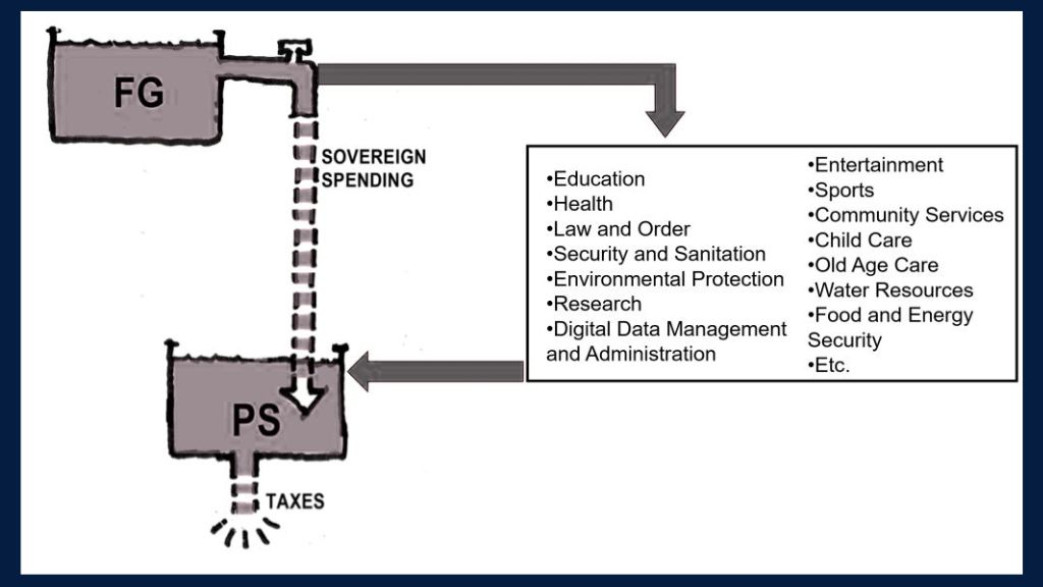𝐓𝐡𝐞𝐫𝐞 𝐢𝐬 𝐨𝐧𝐥𝐲 𝐨𝐧𝐞 𝐆𝐨𝐝 𝐢𝐧 𝐒𝐢𝐤𝐡𝐢𝐬𝐦
Allah vs Waheguru
God
Allah vs Waheguru
God


Opinion | Updated: 20/06/2025
Prof Raj Kumar Singh, DTU
India has the resources to ensure dignity for all universal healthcare, jobs, education, housing and clean cities. With the right policies, we can build a just, innovative and
Website: https://fullemployments.wordpress.com/
Our
nation has all the ingredients for prosperity: a large, dynamic population,
vast agricultural land, and abundant natural resources. Yet, we struggle to
fully realize aspirations like universal healthcare, full employment, and
innovative research and development that create well-paying jobs across
industries. Imagine a society where everyone can retire with security, where
food, housing, and healthcare are guaranteed—offering a life of dignity and
freedom. Picture a nation where all kinds of research are well-funded, and
innovative ideas for public welfare are continuously generated.
In
a resource-rich country like India, there’s no reason we can’t implement
policies that ensure sustainable infrastructure, modern education and job
training, quality healthcare, and housing for all. Imagine cities transformed
into clean, beautiful spaces that foster a sense of community. Envision an
economy where public and private sectors collaborate to achieve full employment
with fair wages, raising the standard of living for everyone. Picture societies
with ample access to health, education, and transportation, where economic
progress prioritizes human well-being over GDP, aligning our activities with
the rejuvenation of ecosystems.
Traditionally,
it’s believed that taxpayers are the backbone of government finances, assuming
the government lacks its own money. This outdated perspective places
individuals like us as the primary financial supporters of government
operations. However, Modern Monetary Theory (MMT) challenges this notion,
asserting that the federal government, not the taxpayer, funds its activities.
Taxes serve other purposes, but the idea that taxes directly finance government
spending is a misconception.
If
policymakers continue to misunderstand fiscal policy—thinking the central
government is financially constrained and dependent on taxes—we will fail to
make the necessary investments to tackle rising unemployment, poverty,
environmental challenges, and prosperous India.
The
good news is that our understanding of nation-building, governance, and money
has evolved. By recognizing that the central government is constrained by
resources, not finances, we open new possibilities. This understanding allows
the government to mobilize idle resources for national development, leading to
a society where public welfare, employment, prosperity and sustainability
coexist harmoniously.
By
shifting our focus away from budget deficits and embracing a new perspective on
public finance, we create an economy that benefits everyone. Restrictive fiscal
policies rooted in unfounded concerns about government accounting have slowed
our growth, fragmented society, diminished living standards, and eroded our
environment. The lack of public investment reflects a failure of imagination—a
reluctance to envision a future with full employment, improved living
conditions, investment in future generations, and effective inflation control.
This lack of vision has also contributed to poverty, ecological harm, delaying
an economy that enhances life and protects the planet.
Understanding
money and governance provides powerful tools for any nation to redefine its
priorities: caring for people, honouring cultural identities, restoring
ecosystems, supporting sustainable agriculture, boosting production, and
encouraging innovation.
Modern
Monetary Theory (MMT), with its focus on real resources and correct
understanding of modern fiscal policies, offers alternative approaches to
achieving tangible improvements.
This understanding allows us to craft fiscal policies that empower local communities and strengthen the domestic economy through full employment. No community—be it a rural village or an urban neighbourhood—should be left behind. Equipped with clarity about what we can afford, we hold the power to create an inclusive economy. Let us envision, and then collectively build, a better future for our nation.
Traditional Government Finance vs. New Perspective
A sovereign nation like India can leverage strategic fiscal policies to
mobilize all underutilized resources—including its unemployed workforce—for
nation-building. By harnessing a deep understanding of fiscal mechanisms,
currency flow, and economic planning, India has the potential to become the first
major economy to achieve zero unemployment, eradicate poverty entirely, and
ensure a higher quality of life for all its citizens.